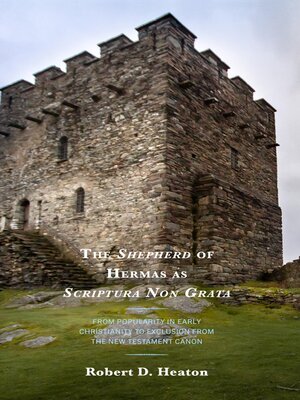The Shepherd of Hermas as Scriptura Non Grata
ebook ∣ From Popularity in Early Christianity to Exclusion from the New Testament Canon
By Robert D. Heaton

Sign up to save your library
With an OverDrive account, you can save your favorite libraries for at-a-glance information about availability. Find out more about OverDrive accounts.
Find this title in Libby, the library reading app by OverDrive.



Search for a digital library with this title
Title found at these libraries:
| Loading... |
Composed within the first Christian century by a Roman named Hermas, the Shepherd remains a mysterious and underestimated book to scholars and laypeople alike. Robert D. Heaton argues that early Christians mainly received the Shepherd positively and accepted it unproblematically alongside texts that would ultimately be canonized, requiring decisive actions to exclude it from the late-emerging collection of texts now known as the New Testament. Freshly evaluating the evidence for its popularity in patristic treatises, manuscript recoveries, and Christian material culture, Heaton propounds an interpretation of the Shepherd of Hermas as a book meant to guide his readers toward salvation. Ultimately, Heaton depicts the loss of the Shepherd from the closed catalogue of Christian scriptures as a deliberate constrictive move by the fourth-century Alexandrian bishop Athanasius, who found it useless for his political, theological, and ecclesiological objectives and instead characterized it as a book favored by his heretical enemies. While the book's detractors succeeded in derailing its diffusion for centuries, the survival of the Shepherd today attests that many dissented from the church's final judgment about Hermas's text, which portends a version of early Christianity that was definitively overridden by devotion to Christ himself, rather than principally to his virtues.






